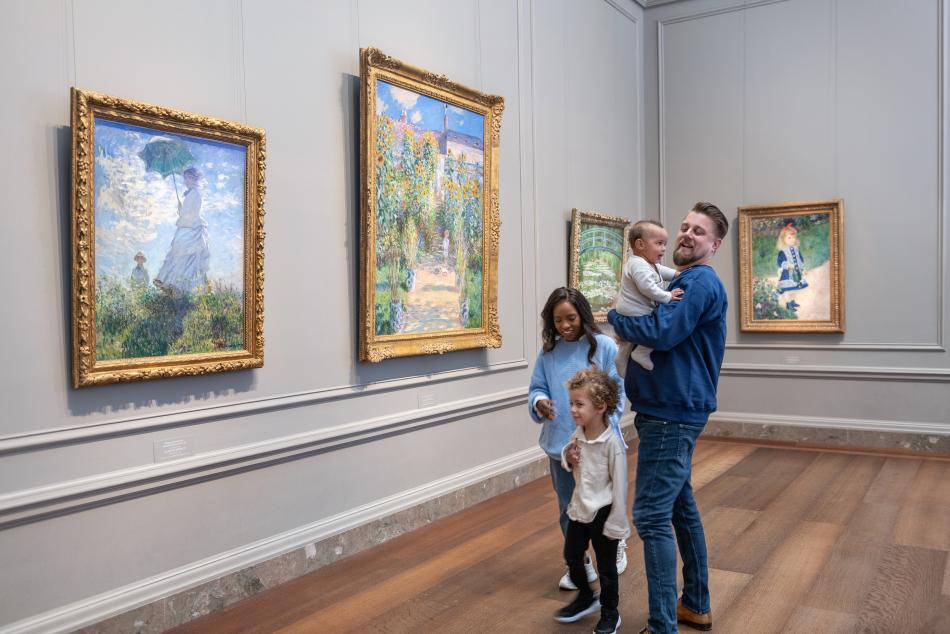The A.W. Mellon Educational and Charitable Trust
est. 1930
Explore Selected Works
See all 333 works of artArtwork

Portrait of a Man
Portrait of a Man
American 19th Century · c. 1835 · oil on canvas · Accession ID 1942.8.8
Artwork

Julianna Hazlehurst
Julianna Hazlehurst
Jacob Eichholtz · c. 1820 · oil on canvas · Accession ID 1947.17.110
Artwork

Saint Venantius [right panel]
Saint Venantius [right panel]
Puccio di Simone, Allegretto Nuzi · 1354 · tempera on panel · Accession ID 1937.1.6.c
Artwork

Madonna and Child Enthroned with Four Saints and Eighteen Angels [middle panel]
Madonna and Child Enthroned with Four Saints and Eighteen Angels [middle panel]
Puccio di Simone, Allegretto Nuzi · 1354 · tempera on panel · Accession ID 1937.1.6.b
Artwork

Saint Anthony Abbot [left panel]
Saint Anthony Abbot [left panel]
Puccio di Simone, Allegretto Nuzi · 1354 · tempera on panel · Accession ID 1937.1.6.a
Artwork

Madonna and Child Enthroned with Saints and Angels, and Saints Anthony Abbot and Venantius [entire triptych]
Madonna and Child Enthroned with Saints and Angels, and Saints Anthony Abbot and Venantius [entire triptych]
Puccio di Simone, Allegretto Nuzi · 1354 · tempera on panel · Accession ID 1937.1.6.a-c
Artwork

Madonna and Child with God the Father and Cherubim
Madonna and Child with God the Father and Cherubim
Anonymous Artist · 1480/1490 · glazed terracotta · Accession ID 1937.1.123
Artwork

La Camargo Dancing
La Camargo Dancing
Nicolas Lancret · c. 1730 · oil on canvas · Accession ID 1937.1.89
Artwork

Georgiana, Duchess of Devonshire
Georgiana, Duchess of Devonshire
Thomas Gainsborough · 1783 · oil on canvas · Accession ID 1937.1.93
Artwork

Portrait of a Man
Portrait of a Man
Unknown 18th Century · c. 1785 · oil on canvas · Accession ID 1947.17.32


